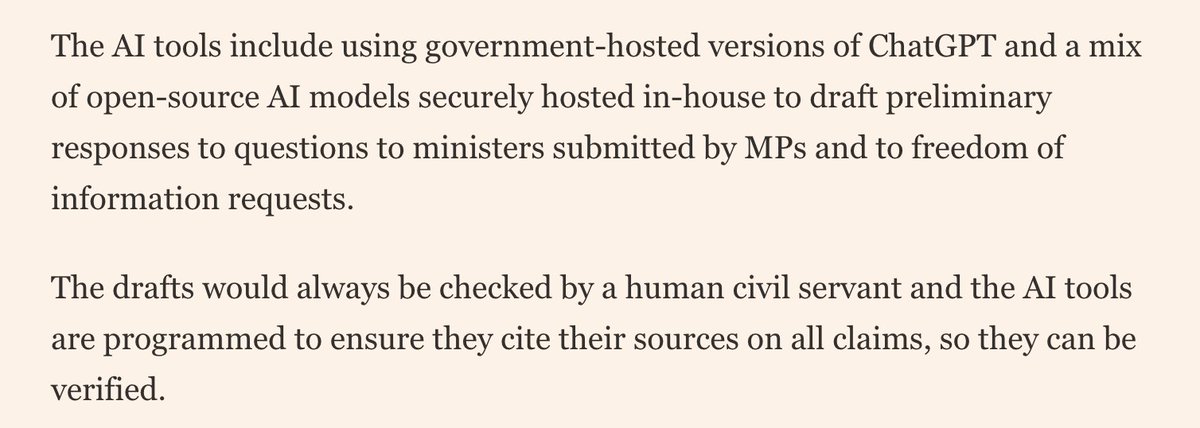Let's do a little #AIhype analysis, shall we? Shotspotter claims to be able to detect gunshots from audio, and its use case is to alert the cops so they can respond.
>>
>>
https://twitter.com/emilymbender/status/1574974746990899200
Q1: Is it plausible that a system could give the purported output (time & location of gunshot) given the inputs (audio recordings from surveillance microphones deployed in a neighborhood)?
>>
>>
A1: At a guess, such a system could detect loud noises that include gunshots (but lots of other things) and might be able to provide some location information (which mics picked it up?) but keep in mind that cityscapes provide lots of opportunities for echos...
>>
>>
Q2: How was the system evaluated?
A2: We don't actually know, but the company says their "ground truth" data come from cops.
Source: aclu.org/news/privacy-t…
>>

A2: We don't actually know, but the company says their "ground truth" data come from cops.
Source: aclu.org/news/privacy-t…
>>


.@MayorofSeattle @SeattleCouncil we should under no circumstances be deploying systems that have not been evaluated for accuracy by neutral third parties.
>>
>>
@MayorofSeattle @SeattleCouncil Also relevant here: The company seems to be saying "Just because there's no evidence that we were right doesn't mean there wasn't gunfire." THIS IS NOT THE ATTITUDE OF CAREFUL ENGINEERS!
>>
>>

@MayorofSeattle @SeattleCouncil Q3: Who is harmed if the system gives inaccurate results?
A3: The citizens & residents of Seattle whose neighborhoods are repeatedly accosted by police coming in on high alert with the belief that a gun was just fired. What a recipe for disaster.
>>
A3: The citizens & residents of Seattle whose neighborhoods are repeatedly accosted by police coming in on high alert with the belief that a gun was just fired. What a recipe for disaster.
>>
@MayorofSeattle @SeattleCouncil Q4: Who is harmed if the system gives accurate results?
A4: Same, frankly. It is not at all clear that the people who live where these surveillance systems are set up benefit from police barging in on high alert. Who asked for this, @MayorofSeattle ? Does it meet their needs?
>>
A4: Same, frankly. It is not at all clear that the people who live where these surveillance systems are set up benefit from police barging in on high alert. Who asked for this, @MayorofSeattle ? Does it meet their needs?
>>
@MayorofSeattle @SeattleCouncil Q5: What problem is the system meant to solve and how does the framing of the automated system narrow the type of solutions that are underconsideration?
>>
>>
@MayorofSeattle @SeattleCouncil A5: Looks like the problem is gun violence. But framing the solution as starting from detecting the sound of gunshots is fundamentally reactive, and meets violence (and false reports of violence) with surveillance at best and state violence at worst.
>>
>>
@MayorofSeattle @SeattleCouncil A5 cont: This framing leaves out of view all proactive approaches to reducing gun violence, starting with, ahem, FEWER GUNS but also programs that address root causes.
>>
>>
In summary, hell no @MayorofSeattle and @SeattleCouncil. A tech city like Seattle should know better than to fall for #AISnakeOil and a city with Seattle's policing history must do better than to head down paths like these.
• • •
Missing some Tweet in this thread? You can try to
force a refresh







